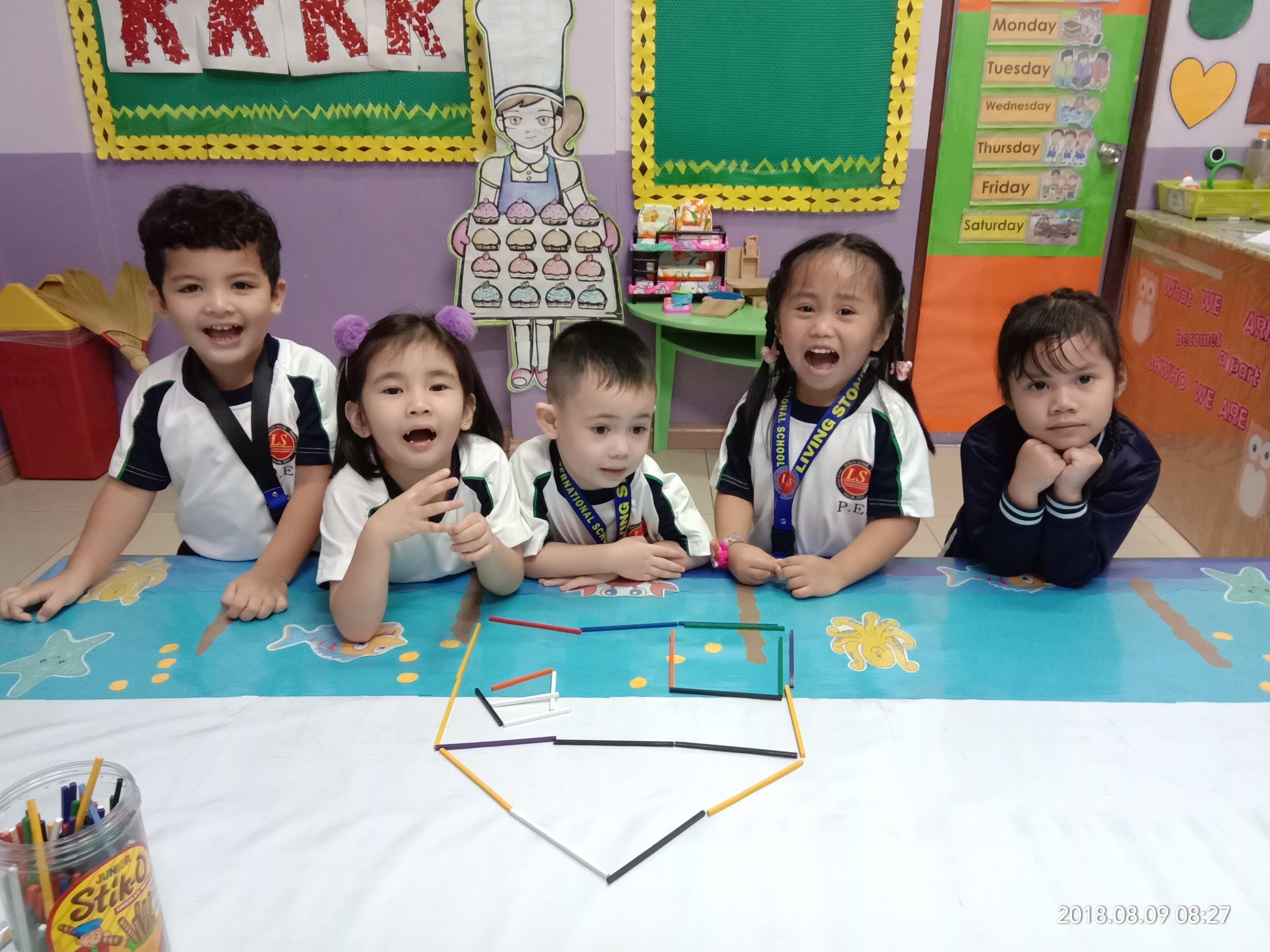Kindergarten
The LSIS Kindergarten curriculum comes in the best Developmental Appropriate Practices. Each undertaking is anchored on 8 Key Developmental Areas. Children are assessed in different areas of competency: Vocabulary, Identifying Letters and Phonemic Awareness, Spelling Ability, Comprehension and Interpretation, Mathematics Ability, Visual Discrimination, Psychomotor, and Socio-Emotional Development. Thus, well-defined means and tools are provided to affect learning. This guarantees Kindergarten learners to become physically, socially, and mentally healthy. The program provides a concrete foundation on which children will bring an understanding of diversity; build exemplary characteristics, and experience the world as successful learners. Regular evaluation of the program and environment is done to maintain and ensure the children’s growth and development. All facets of learning are all geared towards a child’s development: attributes of the facilitators, learning centers, and activities lay as a foundation in early childhood education.











At LSIS Kindergarten, learning is everywhere!
Academic Program
Class programs are conducted through managing the “BLOCKS OF TIME” with tri-annual themes and activities are a repertoire of a group and individualized learning, and free- playtime. Each program captures the child’s interest in the best Developmentally- Appropriate Practices. It provides a solid foundation that revolves around developmental domains and subdomains, which are competency-based.
Activities are child-centered. Each activity promotes the holistic way by which they are guided to discover their interests and innate talents as they explore and experience various activities.
Culminating Programs. These stimulate social growth, interaction, and cultural awareness.
Outdoor Lessons. These foster the actualization of lessons learned inside the learning center and connectedness within themselves and other beings.
Practical Science. This is a direct engagement with the environment where they can investigate, explore, and discover God’s wonderful creation.
Personal Care Routines. This promotes self-help skills and preventive measures. Children are encouraged to employ good habits of health and hygiene which includes toilet training and practices.
Free-Play Time. For children, play is an adventure and this is what they enjoy most; where there is joy there is learning.
Reading Culture. To develop reading habits and reinforce our academic programs in Reading and supplement the reading activities done in learning centers, parents are strongly encouraged to read storybooks borrowed from the library to read to the children at bedtime.
Music and Movement. Music is one way of self-expression. It stimulates children to any precedents-related activities. Children love music and would love to imitate and show things. It develops their potentials and trains them to make choices of their own.
Home-School Partnership. An effective system to the ultimate success of the children is parent involvement. Parents are the most influential teachers and sources of information for child development.

